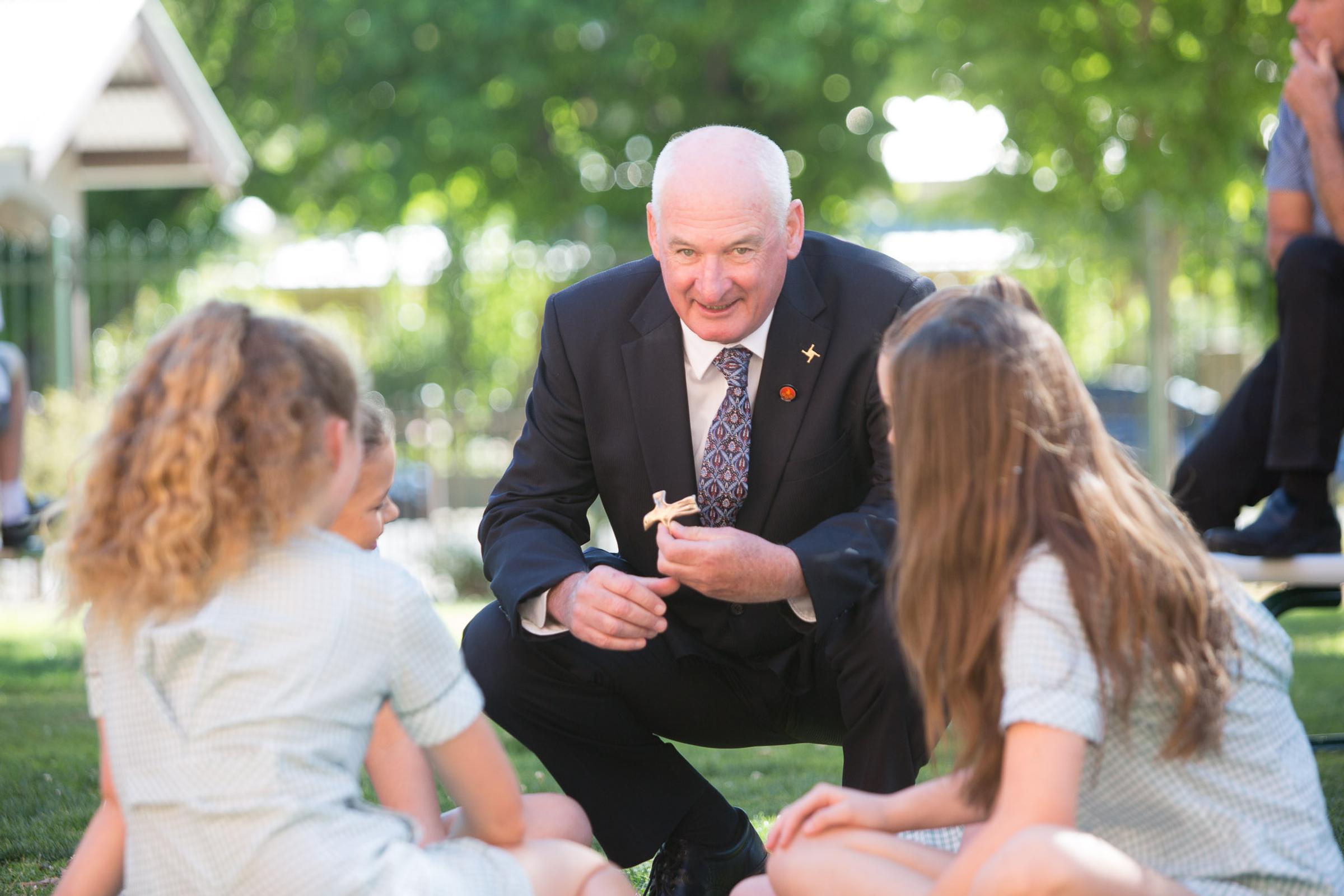Principal's Report

Quiet Time
How much of this is in your life? How easily do we all get ‘busy’ and feel run off our feet? How much quiet time do you create in your day? How much time each day do you spend with your God?
Quiet time is more than just a daily appointment with God. It’s more like a visit to your closest friend. A daily quiet time with God helps us to achieve the serenity we all look for. Just as we need nutrients from food for our bodily needs each day, so we need time with God for our emotional and spiritual needs. We need to send our roots deep into “God territory” in order to weather our storms.
If our emotional and spiritual needs are satisfied, we are more able to share humour and give compliments, to give out positive vibes and cheerful conversation, to take time to listen — particularly to family — and to be non-judgemental. Maybe we all need a portable “baggage-room”; a place such as under a beautiful tree in a nearby park, the sands of a river beach, a local bush track, a quiet street - any place at all where we can be alone and where we can hand over all our “baggage” to God and from where we can return freer in spirit.
Our students always need to be encouraged to make some quiet time in their lives. We all need to be encouraged to make regular quiet time in our lives, especially as end of semester approaches.
“Lord, when my journey seems long and my energy is spent, lead me to be still and discover anew that You are with me.
Amen.”
Gratitude
I hope all students will finish the semester with a sense of gratitude, gratitude for the learning opportunities provided at this College and gratitude for the efforts made on their behalf by their parents and/or guardians and the College staff.
Why bother to practise gratitude in your life? Because scientific studies indicate that gratitude plays a significant role in a person’s sense of wellbeing.
“Acts of daily gratitude result in higher levels of alertness, enthusiasm, determination, optimism and energy. Additionally, people who perform acts of gratitude are more likely to help others, to exercise more regularly, make more progress towards personal goals and are more likely to feel loved. Gratitude encourages a positive cycle of kindness among people since one act of gratitude encourages another.”
McCollough and Emmons, Researchers.
It would seem that anyone can improve their sense of wellbeing and create positive social effects by being grateful with what they have and do in life.
St. Augustine thought so too and had this to say:
“People go abroad to wonder at the height of mountains, at the huge waves of the sea, at the long courses of the rivers, at the vast compass of the oceans, at the circular motion of the stars, and they pass by themselves without wondering. Let us acknowledge the wonder that we are here, in these particular bodies, at this particular time, in these particular circumstances. May we never take for granted the gift of our individuality.”
What great advice! Look at ourselves in a positive manner and allow gratitude to unlock the fullness of life for us. Be grateful for the demands others make of us, for that means that we are considered to be positive contributors in their lives. Be grateful for the weariness at the end of the day/term, for that means that we have been productive for others and ourselves.
There is simply no end to the opportunity we have to be grateful people provided we regard our “glass of life” as being “half-full”.
Winding up a semester is a necessarily busy time and I wish to compliment and especially thank staff and parents for the work that they have done to make sure that our students had the best opportunity possible to produce their best work. Our students also deserve compliments and thanks for the way that they have approached this busy time.
With best wishes for a restful and relaxing holiday break.
God bless.
Michael Delaney
Principal
